Buying kelp online
Dried kelp, or dasima in Korean, or kombu in Japanese, is a very important ingredient in the base broth of many Korean recipes, giving the broth a delicious umami flavor. Kelp is sold in huge sheets in many Asian markets, as well as most whole-foods stores. Choose the thickest you can find. Store in a cool, dry place in an airtight container or zipper-lock bag. Don’t worry if the surface of the kelp has a white powder, it’ll make it more delicious!



![[NongHyup] Dried Korean Seawee...](https://m.media-amazon.com/images/I/41snm3pr68L._SL160_.jpg)
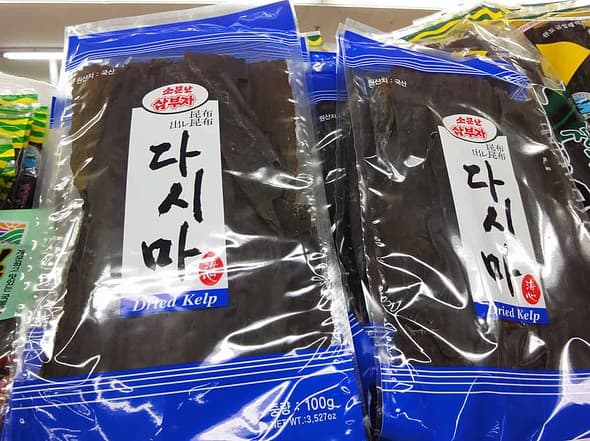
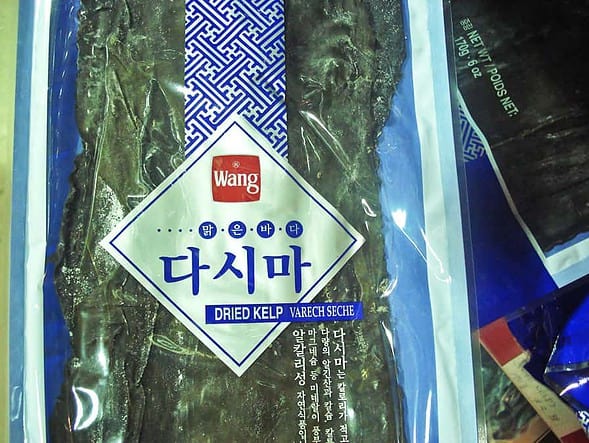
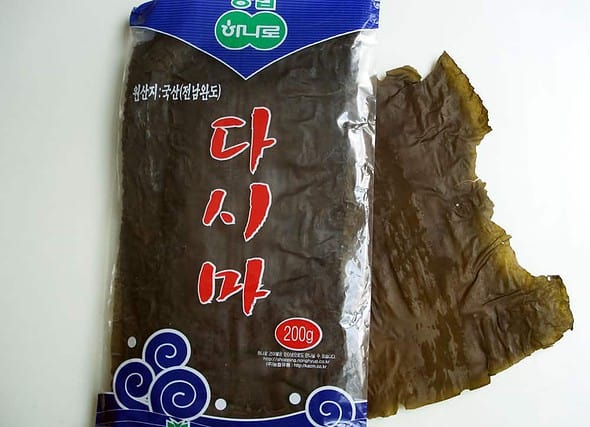
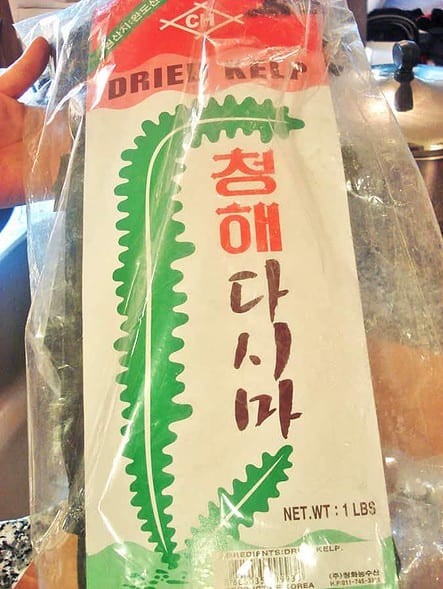






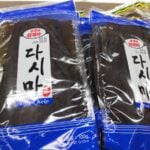
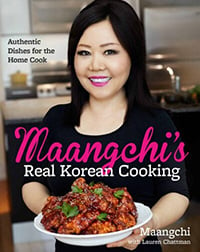
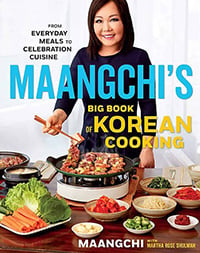
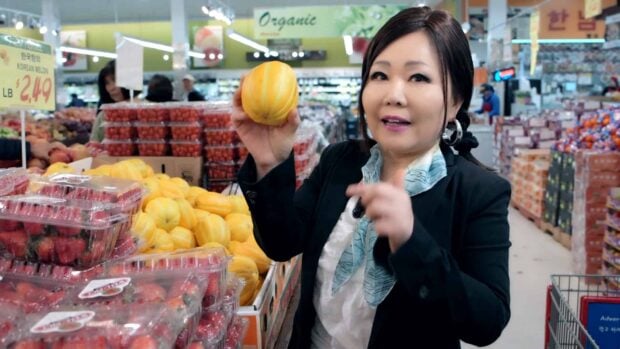
There’s an expiration date on my dashima, but does it truly expire? How long is it good for from purchase date?
It’s presumably “best before”.
It’s ok.
Hi Maanghi. This was the only kind of dried seaweed I could find at my local store, I was wondering if either is fine to use? Thanks.
See full size image
Those two will absolutely work. Dashi kombu 出し昆布 is what you’re looking for when choosing a Japanese variety of kelp (kombu) meant specifically for soup stock (dashi), and that’s exactly what the left package is. As for the one on the right, the Chinese characters on the gold label (海帶片) literally translate to “kelp sheets.” They may not taste exactly like the Korean varieties Maangchi uses—or each other, for that matter—but the differences should be negligible.
Hello I purchased the one which called 염장다시마 is it the right one to use for making broth?
There are many different kinds of dried seaweed. : ) Yes, even though it says dried seaweed, I see it’s dried kelp.
i bought dasima but i don’t know if it is this the same with those you posted above…
what korean dishes can i make with these?
thank you :)
See full size image
hi.. after open the pag of kelp.. how and where can we stoeage it?
can you kelp buds instead of the thin kelp Or Like Roasted Seaweed??
look so good…my was good. it turn out very tasty.
what other recipes can i use for kelp thanks!! :D
I cannot find any Kelp where I live. We don’t have any Korean store where I live. The only thing I’ve found is Seaweed for sushi. Is that the same thing? Can I substitute that for my soft tofu soup?
Hi Linda, that’s not what you want. Is there any Asian store nearby? The kelp is used to give the broth a more complex and savory flavor. If you can’t find it, then I would add more dried shiitake mushrooms to the stock water (just don’t use them all in the stew afterwards). If there is a Japanese market, they will have “kombu” which is the same.
Maangchi, the kelp I bought at the Korean store looks like the one on your pictures, but it has some kind of white stuff on it. I don’t think it’s mold (it doesn’t smell like it at all) so do you perhaps know what it is? Perhaps it’s salt or something? I would be disappointed if I bought the wrong kind, as the lady said it was to give flavour to soups which is what I want to use it for (soondubujjigae, sujebi, all recipes I want to make!).
The white powder on dried kelp is not harmful. Rinse it in cold water before using it.
Hi maangchi, I have the same issue. It’s not a powder per se but some white spots. I’m sending you a picture
See full size image
It’s very normal. You can eat it all. The white powder contains good savory flavor. But if you find any dirt or gritty stuff on it, wipe it off with a wet towel or rinse it in cold water before using it.
The white powder on kelp contains mannitol and is considered not only healthy, but also tasty. (1) I agree with the other comments. Usually packaged, dried kelp won’t contain any dirt and should not need wiping. (2)
Sources:
1. “Flavor and Seasonings – Dashi, Umami, and Fermented Foods” – Japanese Culinary Academy
2. Elizabeth Andoh
Hi
Thank you for your all recipe and teach me how to do korean food. I love your VDO and Love your personality. I have a question I just have a lot of da-shi-ma with my misstake I try to buy the one that can make seaweed soup. I buy a big bag of them. I don’t know what to do. Any kind of food that I can make with da-shi-ma . Please advice Thank you so much :)
Why don’t you leave your question here:
https://www.maangchi.com/talk/forum/general-discussion
Dashima is the same as Kombu, if that makes it easier to find for you guys.
Correct me if I’m wrong.
Dashima and Miyuk are both “seaplants” as Maangchi likes to call them, but they are different varieties.
Dashima is a kelp that commonly used to make stock, then throw away (especially in Japanese cooking). In Japanese, dashima is “kombu”.
Miyuk and kim are varieties of marine algae. In Japanese, miyuk is “wakame” and kim is “nori”.
Hi,
I went to the Korean market today and I was trying to find ingredients to make the soft tofu soup following your instructions, but I couldn’t find any dried kelp. They had salted kelp…and kelp that weren’t dried meaning that there was liquid and juice in them..would that be okay?
-THANKS :)
Sorry, I don’t know the answer. It’s strange the Korean store doesn’t sell dried kelp! Ask the supermarket owner again if they have “dashima”. Please leave your question on the forum. Someone else may know the answer. https://www.maangchi.com/talk/forum/general-discussion
Is the sea kelp edible after it is cooked or should it be discarded?
You can eat it if you want. When I make stock using dried kelp, I usually throw it away. When it is in jangjorim,(salty beef side dish): https://www.maangchi.com/recipe/jangjorim , I eat it.
Hi,
We do not have a Korean grocery store where I live. I bought something called “prophase kelp slices” at an Asian grocery store,which is from China I think. Is this the same thing?
Sylvia,
Yes, it’s different from miyuk(miyeok). Miyuk is wakame in Japanese. https://www.maangchi.com/ingredients/miyuk
I’m confused………..is kelp different than miyuk?
And………is wakame the same as miyuk?